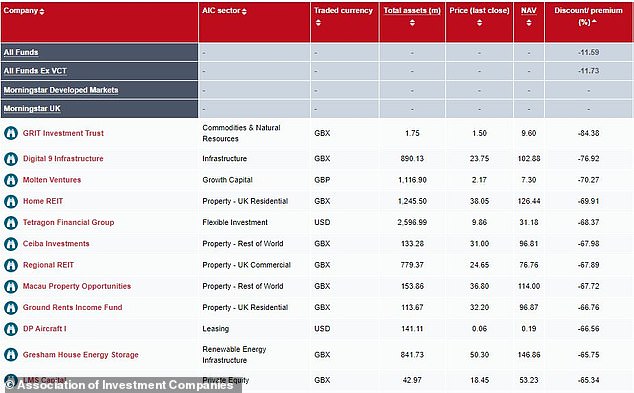- UK-listed investment firms are at a clear disadvantage compared to their international peers
At the start of the year there has been renewed attention on how we can make the UK stock market more competitive, and rightly so.
But left out of the broader conversation was the closely held, publicly traded investment company industry, which has been grappling with issues surrounding cost disclosure rules.
Christian Pittard, director of closed-end investment funds and general director of corporate finance at abrdn
These rules have been felt most acutely among firms investing in illiquid assets, distorting charges in relation to open-ended funds and listed trading companies, which has put our UK-listed investment firms at a distinct disadvantage. compared to their international peers.
Remaining EU legislation has left us with an uncomfortable legacy, requiring UK-listed investment companies and the funds that invest in them to publish the costs of financing, operating and maintaining real assets such as property, infrastructure or renewable energy.
This is despite the fact that these costs are already published in the companies’ regular updates and are reflected in the share price of all investment companies, and for investors this amounts to double counting of costs.
This is double counting because “costs” such as management fees, building maintenance, and interest expenses are accounted for in the stock price value, just as they would be for any other operating company that is listed on the stock exchange, with key financial data set out in the report and accounts.
Likewise, it is a “double counting” that funds (whether active or passive) that invest in closed-end listed funds have to add these regulated cost disclosures with their own costs, again because the costs are already accounted for in the performance of the participation. and the value of the underlying share.

The average London-listed investment trust has a discount to net asset value of 11.6%, with portfolios made up of illiquid assets such as property and private equity among the worst hit.
Like any publicly traded company, investors buy and sell at share price, not net asset value, and the differences between the two can be significant, unlike open-end funds or ETFs.
It has affected investor confidence to the point that the disclosures could be negatively affecting investment decisions.
Reforming the UK’s capital markets is not possible without solving this conundrum, given that the sector accounts for around 36 per cent of the FTSE 250, according to the London Stock Exchange.
Far from creating meaningful transparency, the rules have created distortions that in their current form could drive publicly traded fund companies to the New York Stock Exchange.
Far from creating meaningful transparency, the rules have created distortions that in their current form could drive publicly traded fund companies to the New York Stock Exchange.
In the Autumn Statement, the Government took steps to resolve issues surrounding cost disclosure rules (largely thanks to Baronesses Altmann and Bowles). But although the regulatory mechanisms are turning, we risk stagnating.
This is because, while the FCA was granted leniency so that closed-end investment companies and the funds that invest in them can provide a further breakdown of costs and context, it does not help data providers nor to investment platforms (which use the aggregate figure of ongoing charges). ).
The London Stock Exchange and industry activists have done great work to galvanize support for a meaningful solution, which has been endorsed by the AIC. This has culminated in over 300 signatories (including abrdn) to a joint industry letter submitted by the London Stock Exchange on 10 January 2024 to HM Treasury.
This joint industry letter calls for publicly traded closed-end investment companies to be excluded from the definition of consumer compound investments. The industry proposes to instead provide improved, clearer cost disclosure that better reflects the true cost of buying and selling investment companies.
None of these issues mean that we are not optimistic about the long-term prospects of the sector, far from it. The investment firm industry has weathered many ups and downs over its more than one hundred and fifty-year history, and not only survived, but thrived.
UK market competitiveness
But we urgently need a solution for a sector that has seen incredible growth in alternative assets over the past two decades. The closed structure is well suited to the long-term assets that the UK government wants investors to support. More than two-fifths of publicly traded closed-end funds are private market strategies.
The unique structural advantages of the closed sector will continue to be an opportunity in the future. But just as a great structure also requires great people, it also needs a competitive and supportive regulatory environment. And that’s a conversation worth having.
Christian Pittard is director of closed-end investment funds and general manager of corporate finance at abrdn.


